The longest US government shutdown in history
Federal employees and low-income households have been particularly affected by ‘partisan standoffs’ in Washington
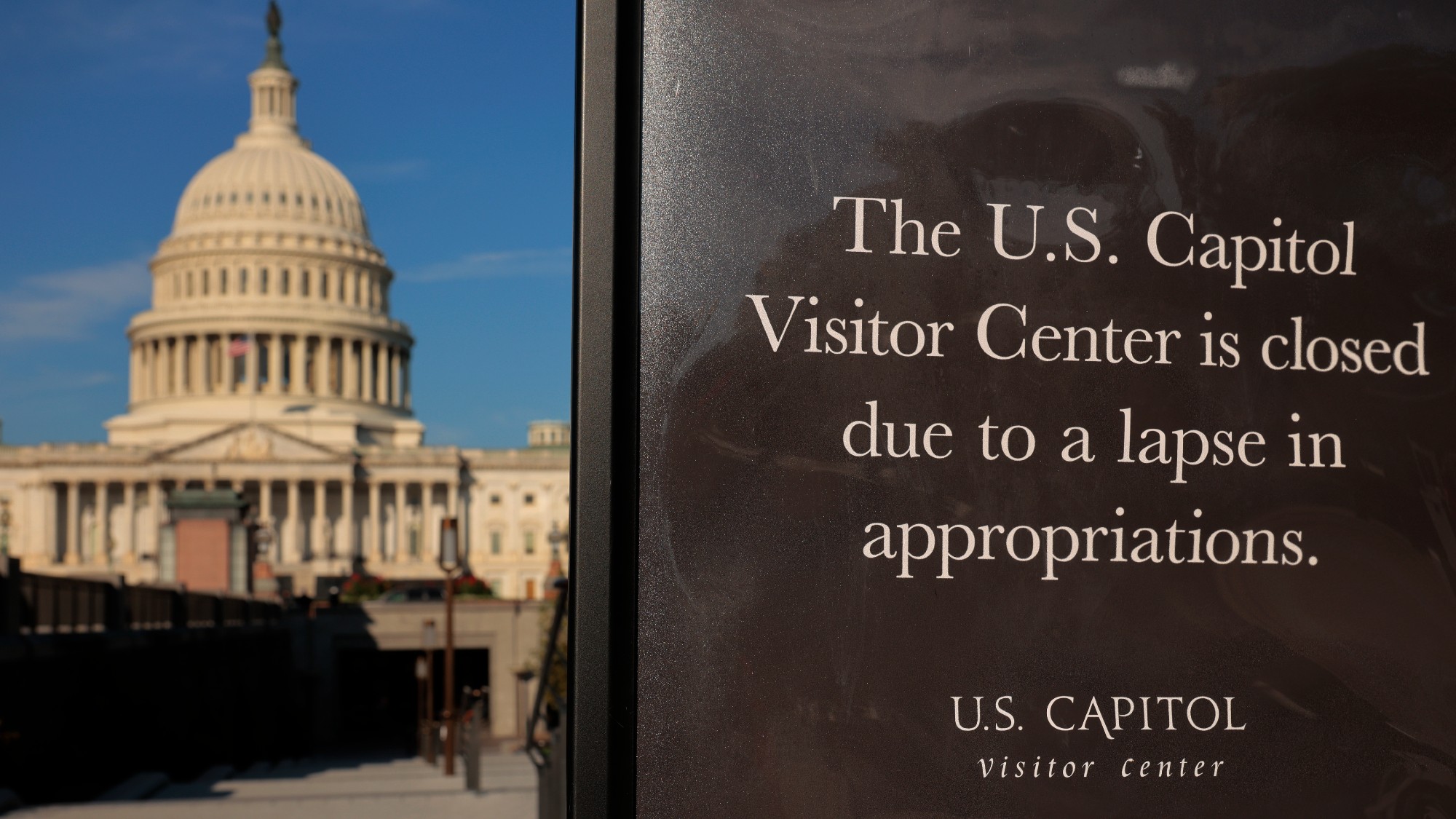
The US government shutdown reached its 36th day yesterday, making it officially the longest in the nation’s history – and there’s no end in sight.
There have been 15 federal shutdowns – “the product of partisan standoffs” over government spending – since 1981, and these episodes have “become a recurring feature of US politics”, said Bloomberg.
Why do shutdowns happen?
The federal government budget is outlined over 12 appropriations bills, each covering a broad area, such as defence or agriculture. These are normally passed each year by Congress and then signed by the president. If all 12 bills aren’t adopted by October, the start of the US fiscal year, then short-term extensions of the existing funding arrangements are passed to minimise disruption. But if Congress refuses to agree to these extensions, that quickly leaves the government with a funding shortfall.
The Week
Escape your echo chamber. Get the facts behind the news, plus analysis from multiple perspectives.

Sign up for The Week's Free Newsletters
From our morning news briefing to a weekly Good News Newsletter, get the best of The Week delivered directly to your inbox.
From our morning news briefing to a weekly Good News Newsletter, get the best of The Week delivered directly to your inbox.
This year, at the end of September, Congress failed to pass a stopgap for the new fiscal year, triggering the latest shutdown. The stand-off centres around Covid-era healthcare subsidies that are due to expire at the end of the year. Democratic lawmakers say millions will be left struggling to afford healthcare if they are not extended. Republicans have maintained that they will not discuss the subsidies until government is reopened.
What effect is it having?
Around 750,000 federal employees have been furloughed without pay, with almost as many continuing to work without receiving any money. Many are seeking temporary jobs, while others have been forced to resort to using food banks.
The shutdown is also affecting the 42 million Americans who receive benefits through Snap, a federal programme that provides food stamps to low-income families. Although the government said it will use an emergency fund to cover around half of the normal benefits, payments for November have already been delayed for millions. A programme that helps millions of low-income households with energy bills is “also taking a hit”, and centres for pre-school children have been cut off from federal funds, said Sky News.
Flight delays are also “piling up” due to shortages of federally employed air traffic controllers and security officers. More than 3.2 million passengers have had flights delayed or cancelled since the shutdown began, according to Airlines for America.
A free daily email with the biggest news stories of the day – and the best features from TheWeek.com
When will it end?
“Despite the punishing toll of federal closures on the country”, an imminent agreement remains unlikely, said The Associated Press. A string of Democrat victories in state elections on Tuesday – which Donald Trump blamed partly on the shutdown – has been seen by many Democrats as a “validation of their strategy” of holding out for a deal.
A “small bipartisan group of rank-and-file senators” are “in conversation” to try to end the shutdown, said ABC News, but a reopening of government is unlikely before the week of 17 November, say Democrat leaders in the House, according to Politico.
Chas Newkey-Burden has been part of The Week Digital team for more than a decade and a journalist for 25 years, starting out on the irreverent football weekly 90 Minutes, before moving to lifestyle magazines Loaded and Attitude. He was a columnist for The Big Issue and landed a world exclusive with David Beckham that became the weekly magazine’s bestselling issue. He now writes regularly for The Guardian, The Telegraph, The Independent, Metro, FourFourTwo and the i new site. He is also the author of a number of non-fiction books.
-
 Is a social media ban for teens the answer?
Is a social media ban for teens the answer?Talking Point Australia is leading the charge in banning social media for people under 16 — but there is lingering doubt as to the efficacy of such laws
-
 Magazine crossword: 1499
Magazine crossword: 1499Puzzles The weekly crossword from The Week
-
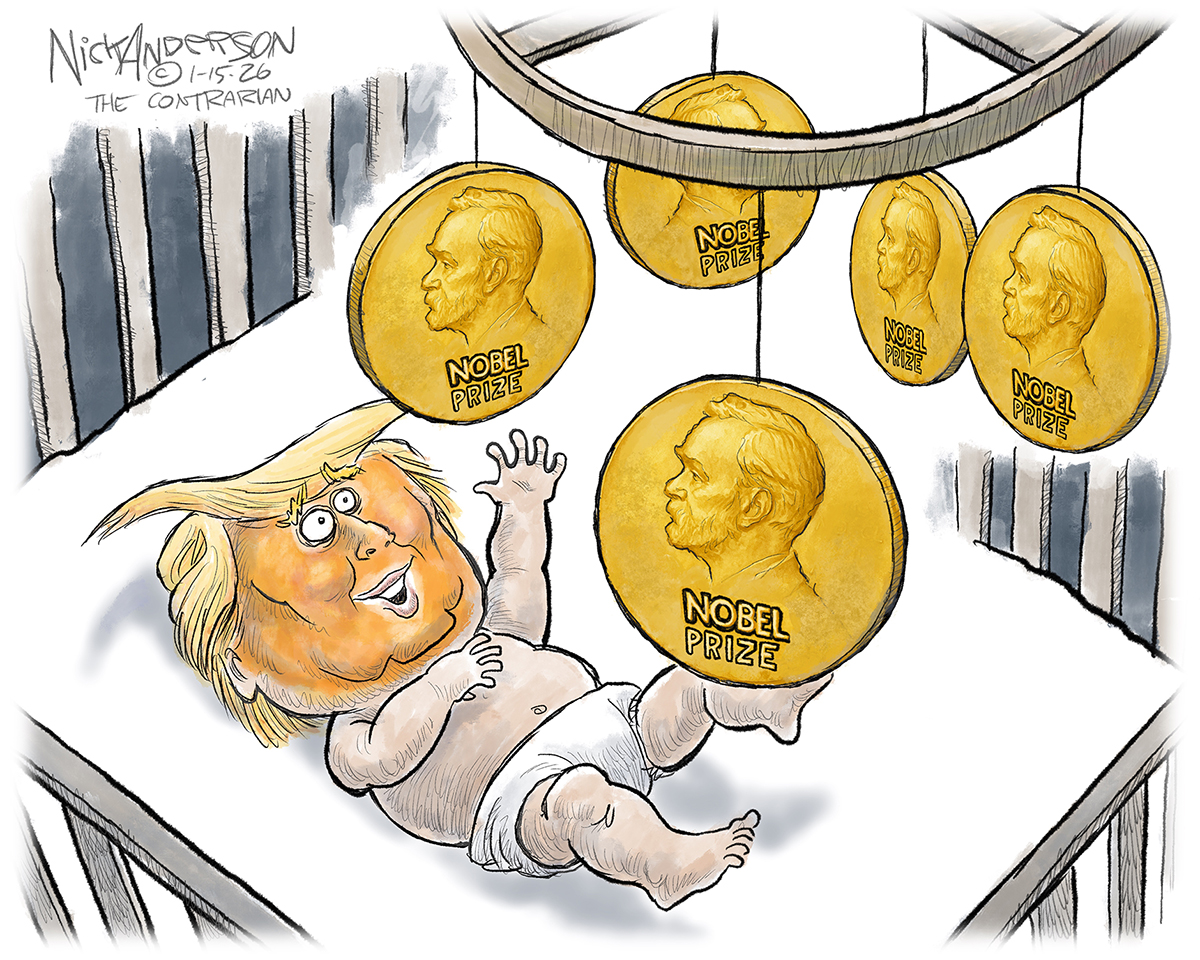 Political cartoons for January 16
Political cartoons for January 16Cartoons Friday’s political cartoons include the Nobel Peace prize, the wrong island, and more
-
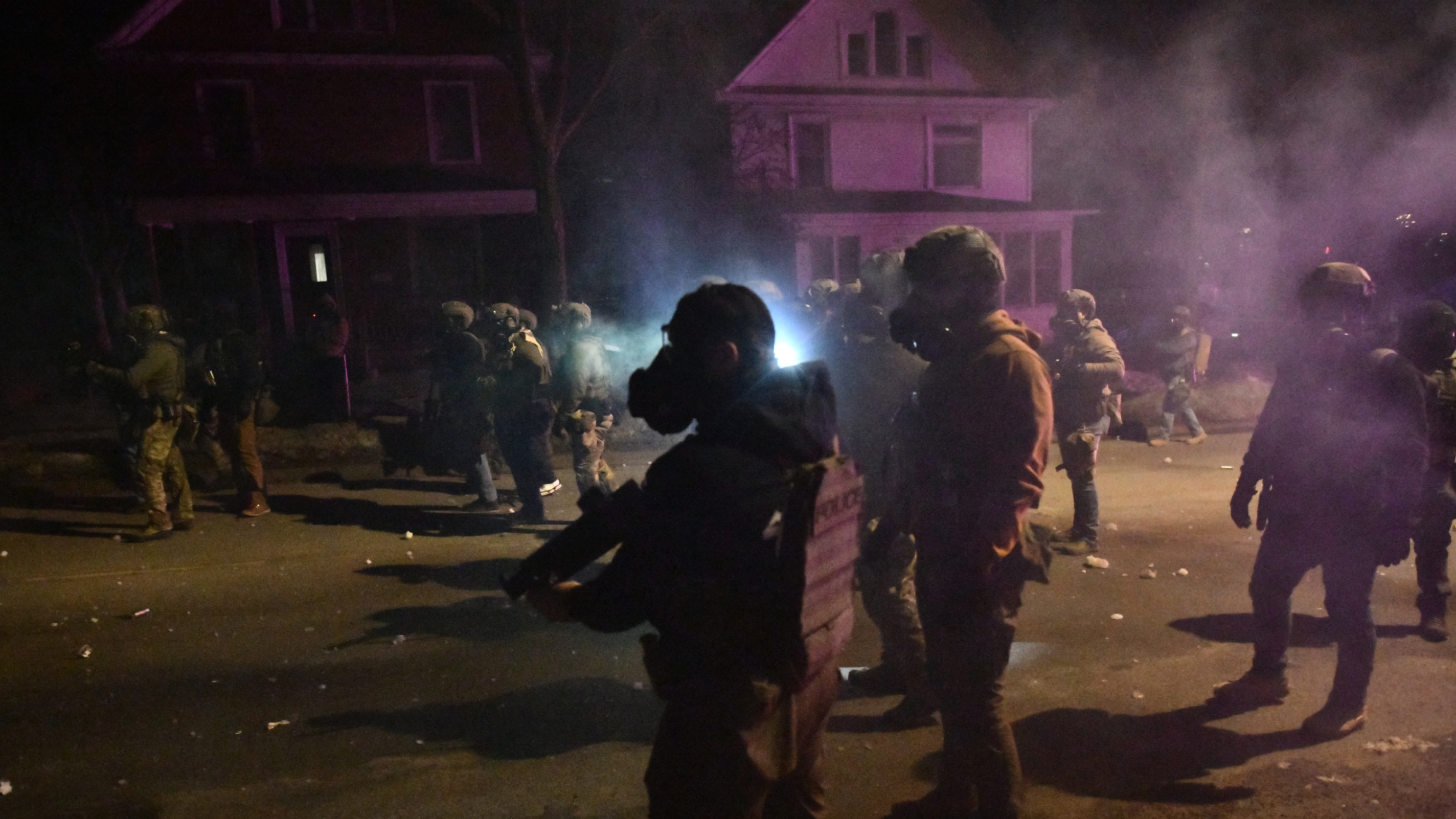 Trump threatens Minnesota with Insurrection Act
Trump threatens Minnesota with Insurrection ActSpeed Read The law was passed in 1807 but has rarely been used
-
 Why is Trump threatening defense firms?
Why is Trump threatening defense firms?Talking Points CEO pay and stock buybacks will be restricted
-
 ‘The security implications are harder still to dismiss’
‘The security implications are harder still to dismiss’Instant Opinion Opinion, comment and editorials of the day
-
 Judge clears wind farm construction to resume
Judge clears wind farm construction to resumeSpeed Read The Trump administration had ordered the farm shuttered in December over national security issues
-
 Trump DOJ targets Fed’s Powell, drawing pushback
Trump DOJ targets Fed’s Powell, drawing pushbackSpeed Read Powell called the investigation ‘unprecedented’
-
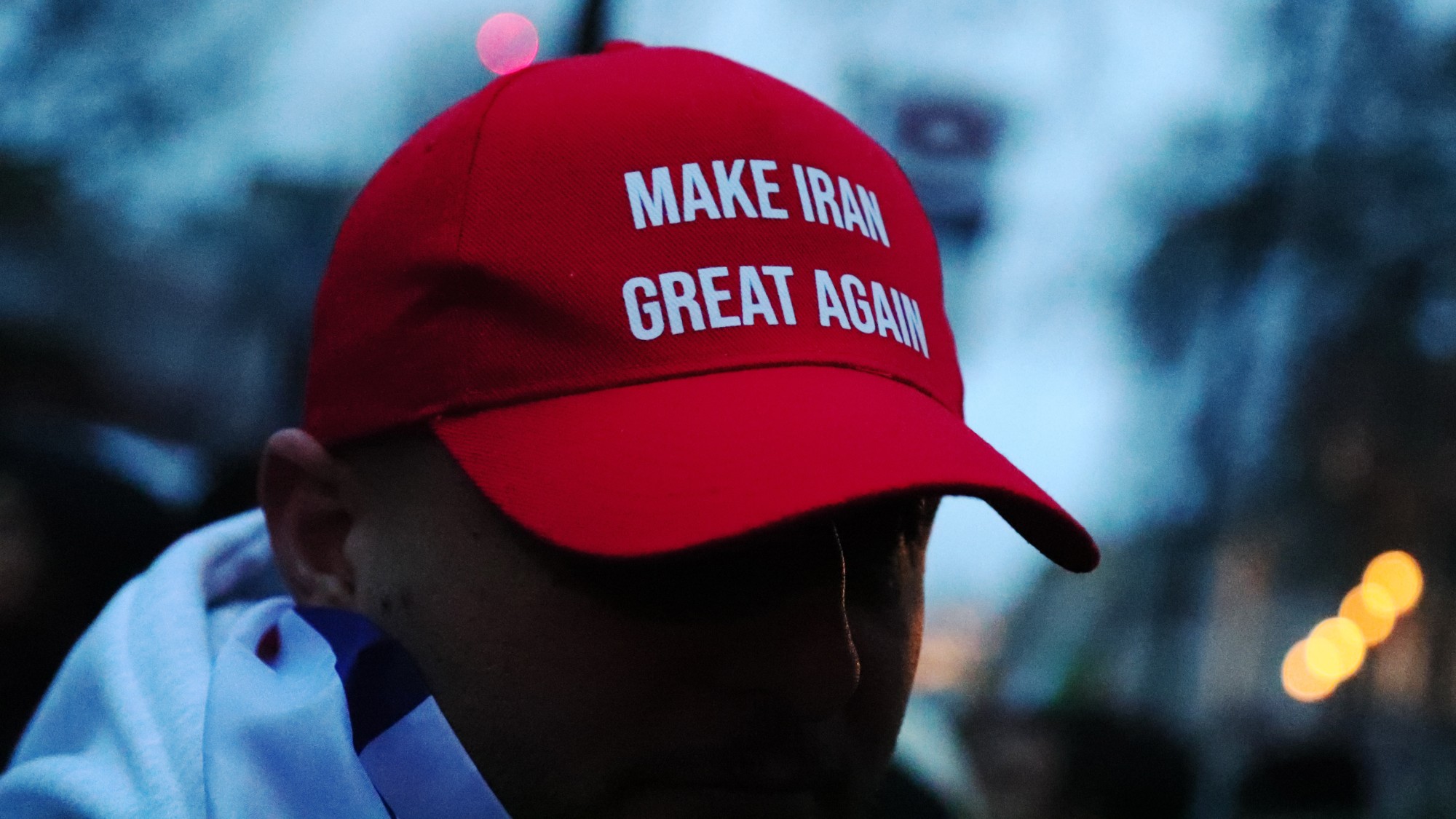 What are Donald Trump’s options in Iran?
What are Donald Trump’s options in Iran?Today's Big Question Military strikes? Regime overthrow? Cyberattacks? Sanctions? How can the US help Iranian protesters?
-
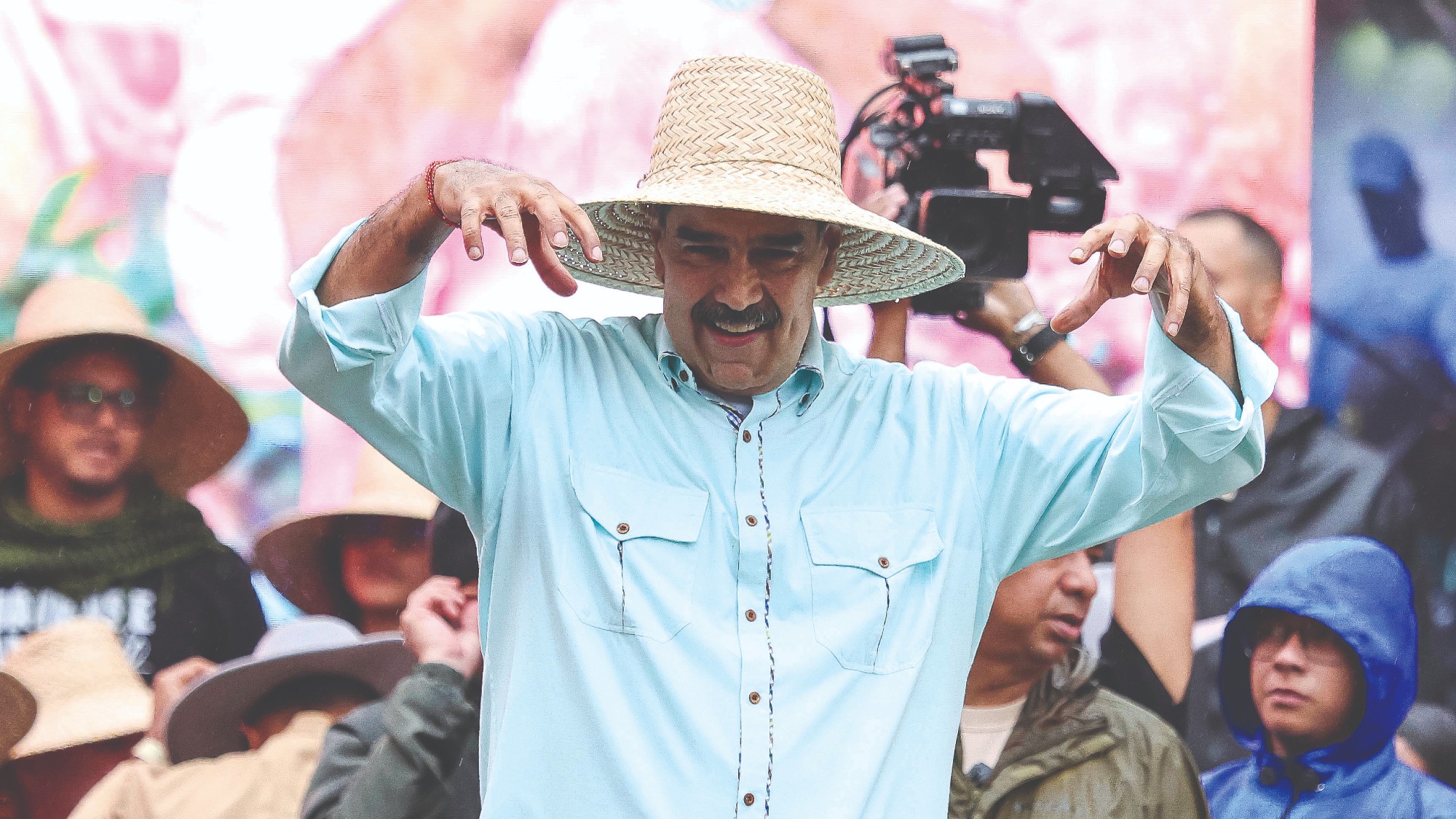 Maduro’s capture: two hours that shook the world
Maduro’s capture: two hours that shook the worldTalking Point Evoking memories of the US assault on Panama in 1989, the manoeuvre is being described as the fastest regime change in history
-
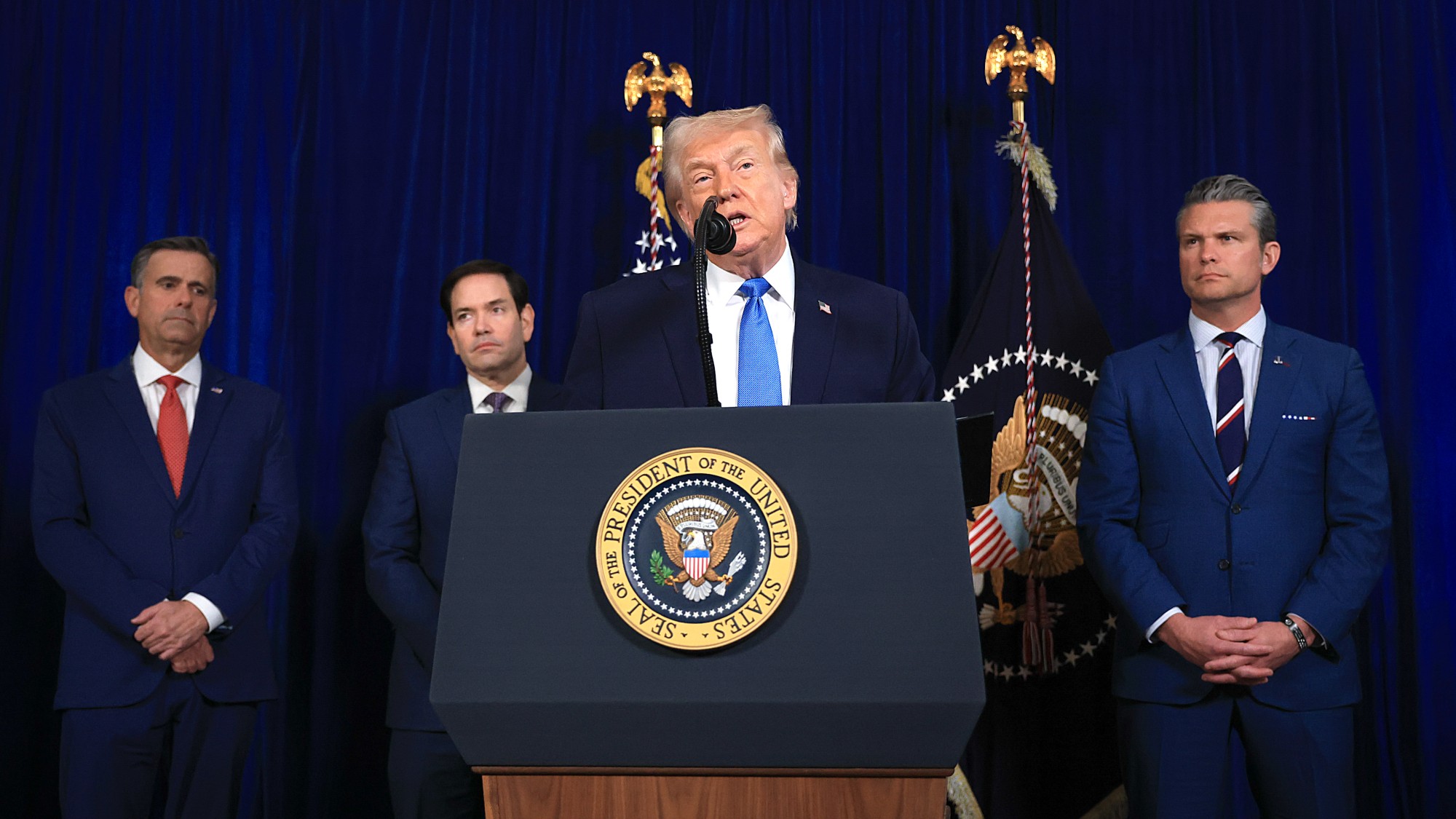 Trump’s power grab: the start of a new world order?
Trump’s power grab: the start of a new world order?Talking Point Following the capture of Nicolás Maduro, the US president has shown that arguably power, not ‘international law’, is the ultimate guarantor of security